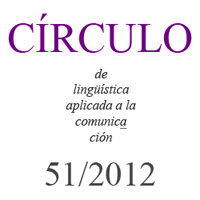Anglo-Saxon Others in the Spanish imagination
Palabras clave:
Anglo-Saxon, cross-cultural identity, 19th century Spain, EnglishnessResumen
This paper aims to contribute to contemporary research on Spanish images of Englishness and thus on cross-cultural otherness. More precisely, it seeks to identify and describe the composite image of Anglo-Saxon Others as portrayed in ten nineteenth century Spanish history books and to critically discuss the results. Despite Anglo-Saxon England being a marginal issue for nineteenth century Spanish scholarship, it has been proved that existing narratives constitute seminal representations of Anglo-Saxon identity and serve a neatly defined heterogeneous array of political and collective aims. The present analysis suggests that the portrayal of Anglo-Saxon Others contributes to reinforce the ideological bases on which the Anglo Saxons themselves are built and reveals the tensions which result from the multiple functions performed by the narratives selected. More in particular, the narratives analysed will be shown to differ according to the degree of detail with which the AngloSaxon Others are described, and to roughly conform to the Roman vs Germanic traditions recognised among Anglosaxonists. The tradition a given historian belongs to seems to determine not only the features chosen to represent the Anglo-Saxon Others, but also the number of groups that should be defined as such. Most interestingly, a different concept of race appears to emerge from either ideological platform. From a more general standpoint, this research enhances our understanding of the symbolic nature of stereotypes as created in narratives of major social institutions which maintain a relationship of expert-novice with their audiences. Last but not least, this paper opens up new areas of inquiry for future research.
[PDF]
